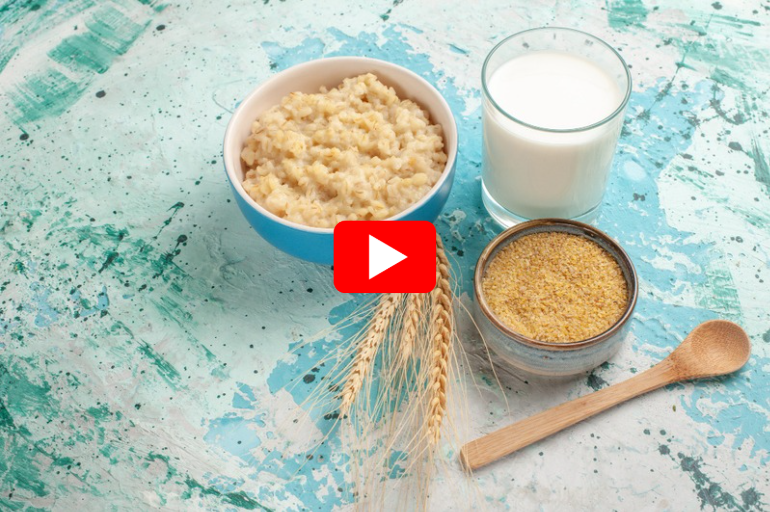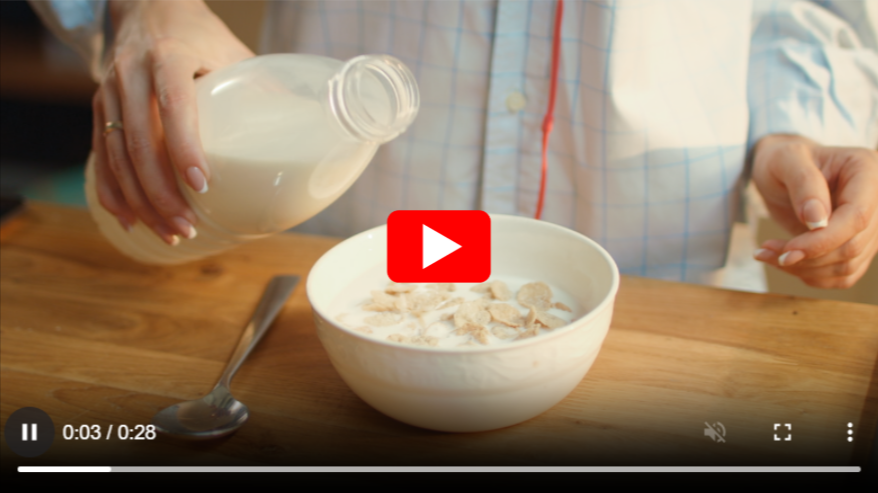Is Quaker Oats Good for Diabetes? Benefits, Glycemic & Tips
Contents
- 1 Understanding Diabetes and Diet
- 2 What Are Quaker Oats?
- 3 Nutritional Profile of Quaker Oats
- 4 Glycemic Index of Quaker Oats
- 5 The Power of Beta-Glucan for Blood Sugar Control
- 6 Quaker Oats vs. Other Carbohydrates
- 7 Health Benefits of Quaker Oats for Diabetics
- 8 How to Eat Quaker Oats for Diabetes
- 9 Best Types of Quaker Oats for Diabetes
- 10 Can Diabetics Eat Quaker Oats Daily?
- 11 Precautions and Potential Downsides
- 12 What Do Health Experts Say?
- 13 Recipes Using Quaker Oats for Diabetics
- 14 Final Verdict: Is Quaker Oats Good for Diabetes?
Managing diabetes requires a delicate balance of diet, exercise, medication, and lifestyle changes. One of the most critical dietary considerations is carbohydrate management, which directly impacts blood sugar levels.
Oats, particularly from a trusted brand like Quaker, often come up in conversations about healthy carbs. But is Quaker Oats good for diabetes? Let’s explore this question with science-backed insights and practical dietary advice.
Discover if Quaker Oats is good for diabetes. Learn about its glycemic index, nutritional benefits, and how to include oats in a diabetic-friendly diet.
Understanding Diabetes and Diet
Diabetes mellitus is a chronic metabolic disorder characterized by high blood glucose levels. It results either from insufficient insulin production (Type 1), insulin resistance (Type 2), or both.
Regardless of the type, managing diabetes heavily depends on dietary choices that help maintain stable blood sugar levels.
Carbohydrates are the macronutrient with the most immediate effect on blood sugar. That’s why diabetics are often encouraged to consume complex carbohydrates with a low glycemic index (GI), fiber-rich foods, and whole grains.
This is where oats come into play, and more specifically, Quaker Oats—a globally recognized brand known for its quality and consistency.
What Are Quaker Oats?
Quaker Oats is a brand offering a wide range of oat-based products, including Old-Fashioned Oats, Steel-Cut Oats, Instant Oats, and Oatmeal Packets.
The primary ingredient in most Quaker oat products is 100% whole grain oats. These oats are minimally processed, making them a rich source of fiber, especially beta-glucan, a type of soluble fiber with known health benefits.
What makes Quaker Oats particularly popular among health-conscious consumers is its transparency in labeling, long-standing reputation, and the variety of products catering to different dietary needs and time constraints.
Nutritional Profile of Quaker Oats
To determine whether Quaker Oats are suitable for diabetics, it’s essential to look at their nutritional content. One-half cup of dry Quaker Old-Fashioned Oats (about 40g) typically contains:
- Calories: 150
- Total Carbohydrates: 27g
- Dietary Fiber: 4g
- Soluble Fiber (Beta-glucan): ~2g
- Sugars: 1g
- Protein: 5g
- Fat: 3g (mostly unsaturated)
This composition highlights that Quaker Oats are low in sugar, moderately high in carbohydrates, and rich in fiber and protein, making them a potentially excellent food for glycemic control.
Glycemic Index of Quaker Oats
The Glycemic Index (GI) measures how quickly carbohydrates in food raise blood glucose levels. Foods with a GI under 55 are considered low, making them ideal for people with diabetes.
Quaker Steel-Cut and Old-Fashioned Oats have a GI of around 55, while Quaker Instant Oats have a GI of 70 or higher, placing them in the medium to high range.
That said, how you prepare your oats and what you add to them significantly impacts the overall glycemic load.
Cooking oats with water and avoiding added sugars or processed toppings can help maintain a lower glycemic response.
The Power of Beta-Glucan for Blood Sugar Control
Beta-glucan is a form of soluble fiber found abundantly in oats. When consumed, it forms a gel-like substance in the gut, slowing down digestion and the absorption of glucose. This process helps prevent rapid blood sugar spikes after meals.
Studies have shown that consuming beta-glucan regularly may lead to:
- Lower postprandial glucose levels
- Improved insulin sensitivity
- Reduced HbA1c (a marker of long-term glucose control)
Therefore, the beta-glucan in Quaker Oats plays a key role in making it diabetes-friendly.
Quaker Oats vs. Other Carbohydrates
When compared to white rice, white bread, or sugary cereals, Quaker Oats come out far ahead in terms of nutritional value and blood sugar management.
Most simple carbs are quickly broken down into glucose, causing a spike in blood sugar. In contrast, oats provide slow-releasing complex carbohydrates, which help sustain energy levels and reduce the risk of hyperglycemia.
Furthermore, Quaker Oats contain no added sugar or preservatives in their original form. That’s a significant advantage over pre-sweetened cereals or granola bars that many unknowingly consume, thinking they are healthy.
Health Benefits of Quaker Oats for Diabetics
Besides helping manage blood sugar, Quaker Oats offers several additional health benefits for individuals with diabetes:
1. Weight Management
Oats are filling and may reduce appetite due to their fiber content. Managing weight is crucial for type 2 diabetics, as excess weight contributes to insulin resistance.
2. Heart Health
People with diabetes are at greater risk for cardiovascular disease. Quaker Oats contain antioxidants and heart-friendly nutrients like magnesium, potassium, and unsaturated fats that support heart health.
3. Digestive Health
The fiber in oats promotes gut health and regular bowel movements, which can improve nutrient absorption and overall well-being.
4. Cholesterol Reduction
Oats help reduce LDL (bad) cholesterol without affecting HDL (good) cholesterol, thereby improving lipid profiles—another concern for diabetics.
How to Eat Quaker Oats for Diabetes
To gain the most benefit from Quaker Oats while managing diabetes, it’s essential to prepare and consume them wisely:
- Choose plain varieties: Always go for Quaker Old-Fashioned, Steel-Cut, or Quick Oats rather than flavored or instant versions with added sugars.
- Mind the portions: Stick to ½ cup dry oats per serving and balance with protein or healthy fats.
- Use low-GI toppings: Add chia seeds, nuts, unsweetened almond milk, Greek yogurt, or cinnamon to enhance flavor and nutrition without spiking blood sugar.
- Avoid sugary toppings: Skip honey, brown sugar, and sweetened fruits. Instead, opt for fresh berries or a small amount of banana.
- Cook oats with water or unsweetened plant-based milk to avoid hidden sugars in dairy or sweetened milk substitutes.
Best Types of Quaker Oats for Diabetes
Here’s a breakdown of Quaker Oats varieties and their suitability for diabetics:
- Steel-Cut Oats: Least processed, highest in fiber, and lowest glycemic index. Best option.
- Old-Fashioned Oats (Rolled): More processed than steel-cut but still low GI and good for blood sugar.
- Quick Oats: Fine for diabetics in moderation, slightly higher GI but still better than sugary cereals.
- Instant Oats (Packets): Often contain added sugar and flavorings. Not ideal unless labeled “plain” or “unsweetened.”
Can Diabetics Eat Quaker Oats Daily?
Yes, diabetics can safely eat Quaker Oats daily—provided they’re mindful of portion sizes and avoid sugary additives.
In fact, making oats a regular breakfast option can create a consistent and balanced glucose response in the morning, which is critical for day-long blood sugar management.
It’s recommended to rotate oat-based meals with other whole grain options like barley, quinoa, or buckwheat to ensure a diverse nutrient intake.
Precautions and Potential Downsides
While oats are generally safe, a few considerations should be noted:
- Portion Overload: Even healthy carbs can spike blood sugar if consumed in large quantities.
- Allergies: Although rare, some individuals may be sensitive or allergic to oats or may cross-react if they have gluten sensitivities.
- Packaged Oats with Sugar: Many flavored oatmeal packets contain significant amounts of sugar and sodium, which can harm blood sugar control and cardiovascular health.
Always read labels carefully and consult your healthcare provider when introducing new foods into your diabetic diet.
What Do Health Experts Say?
Numerous organizations, including the American Diabetes Association, recognize oats as a beneficial food for diabetes management.
Clinical nutritionists often recommend oats for breakfast due to their slow-release energy, high fiber content, and versatility.
Registered dietitians also praise oats as a budget-friendly, heart-healthy staple that can be adapted into various dishes, from overnight oats and smoothies to oat pancakes and savory oat bowls.
Recipes Using Quaker Oats for Diabetics
Here are a few easy, diabetic-friendly ideas:
1. Savory Oatmeal Bowl
Cook steel-cut oats with water and stir in sautéed spinach, mushrooms, a boiled egg, and a sprinkle of turmeric.
2. Cinnamon Nut Butter Oats
Old-Fashioned oats cooked in unsweetened almond milk with cinnamon, flaxseeds, and a tablespoon of natural peanut butter.
3. Overnight Oats
Combine oats, chia seeds, unsweetened almond milk, and diced strawberries in a jar. Refrigerate overnight and enjoy cold.
These meals are not only low in sugar but also packed with nutrients that support blood sugar balance and general wellness.
Final Verdict: Is Quaker Oats Good for Diabetes?
Yes, Quaker Oats is good for diabetes when consumed in its plain, minimally processed forms like Steel-Cut or Old-Fashioned Oats.
It supports stable blood sugar levels, promotes heart health, aids in weight management, and provides essential nutrients that benefit diabetic individuals.
However, moderation is key, and it’s crucial to avoid sugar-laden instant varieties. When paired with a balanced meal plan and active lifestyle, Quaker Oats can be a cornerstone in the dietary management of diabetes.
.
.
📚 References
- Oatmeal and Diabetes: The Dos and Don’ts. https://www.webmd.com
- Diabetes diet: Create your healthy-eating plan. https://www.mayoclinic.org
- Is Oatmeal Good for People with Diabetes?: https://www.healthline.com
- Effects of beta-glucan on glycemic control: https://www.ncbi.nlm.nih.gov
- Glycemic index for 60+ foods: https://www.health.harvard.edu



